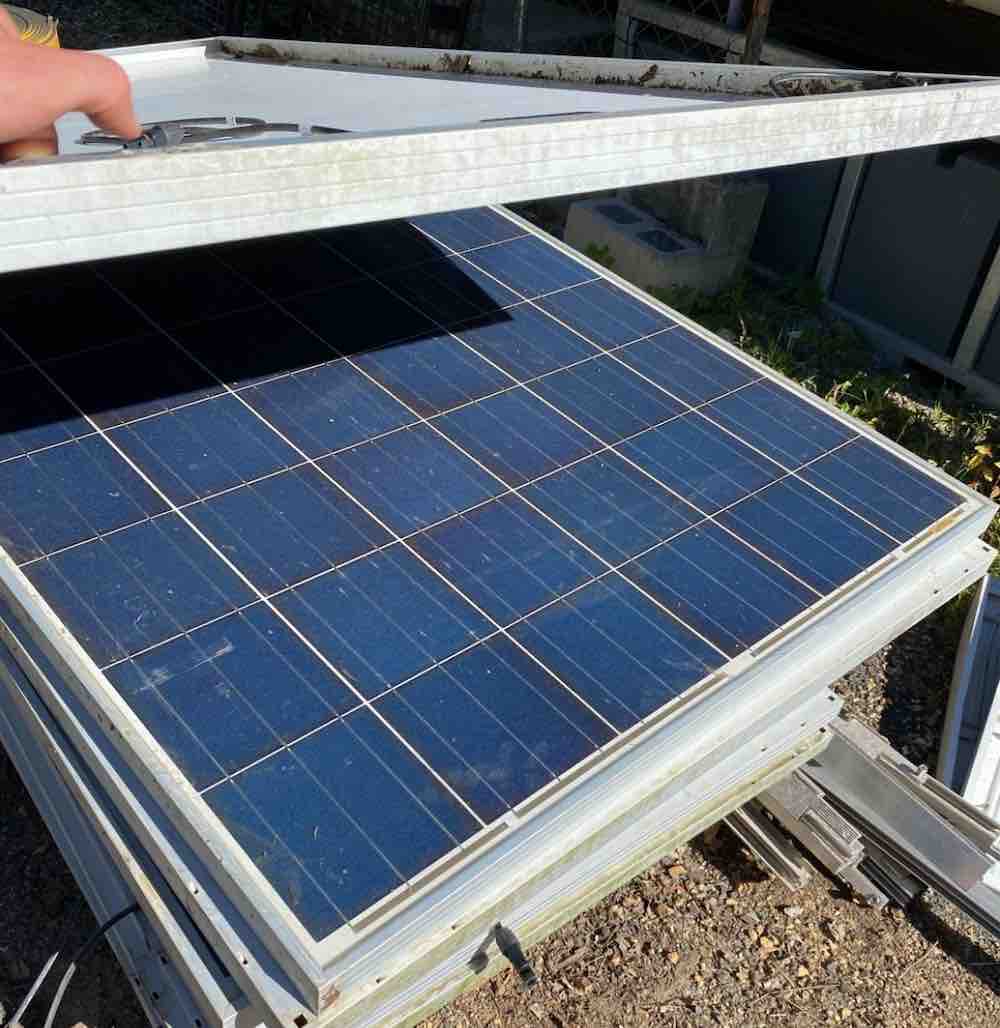
Chinese solar manufacturing giant Trina Solar announced this week that it has successfully produced the world’s first fully recycled crystalline silicon (c-Si) module which still boasts efficiency of 20.7 per cent and power output in excess of 645W.
The milestone was achieved by the Trina Solar Central Research Institute using its own recycling technology and used materials recovered from waste modules – including silicon, silver, aluminium frames, and glass.
Trina Solar said that it completed production of the recycled PV modules in collaboration with its upstream and downstream partners and builds on the company’s recycling efforts.
Trina Solar dismantles discarded solar PV modules and recycles broken silicon wafers, while using a range of processes to obtain silicon wafers with performance close to that of the original.
This includes the use of self-developed interlayer separation reagents, chemical etching technology, wet chemical silver extraction technology and other innovative technologies.
Glass and aluminium frames are recycled from discarded solar PV modules and formed through a secondary melting process.
Partnering with upstream and downstream suppliers also allowed Trina Solar to recover the silver powder recycled from discarded solar PV modules, which is then used to prepare the front fine grid slurry.
The recycled PV module uses n-type TOPCon technology and boast module efficiency of 20.7 per cent and power output exceeding 645W.
Gao Jifan, chairman and CEO of Trina Solar and president of the Central Research Institute, says production of the world’s first fully recycled photovoltaic module is part of the company’s responsibility to promote the circular economy.
Trina Solar currently has applied for 37 patents in the field of module recycling, including 11 authorized and published invention patents.

